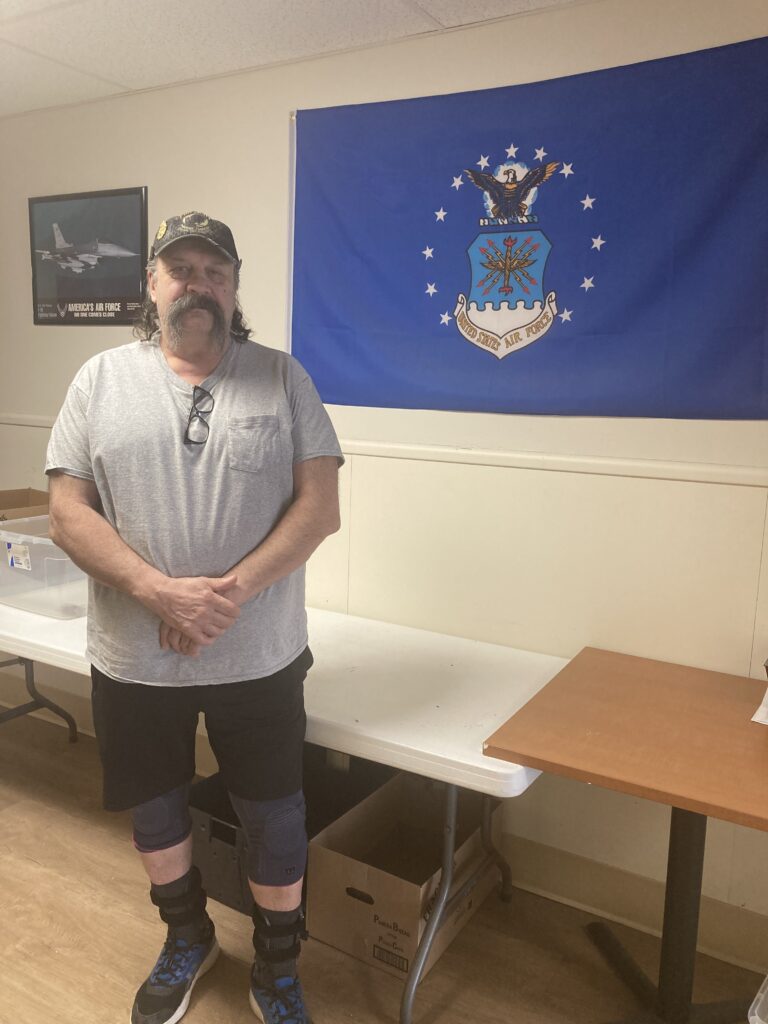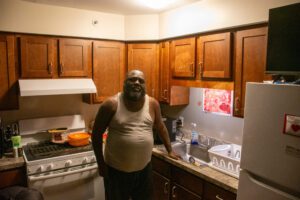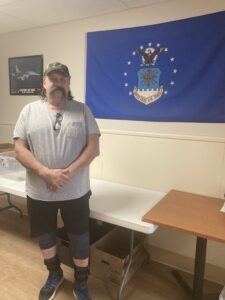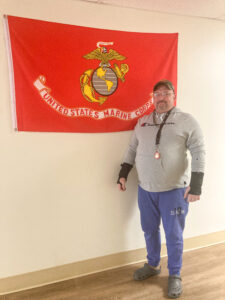Peter was homeless for eight months, sleeping on the street and in different shelters in Augusta and Lewiston. He’s an Air Force Veteran, originally from Madawaska, Maine, who lost housing when his landlord increased his rent with only a month’s notice. “I had an apartment for seven years. New landlord bought it and told me the rent is going up.”
Veterans are at greater risk of experiencing homelessness than the average person in the U.S. There isn’t a perfect answer explaining why, but Veterans face many challenges that increase the risk for homelessness, like post-traumatic stress disorder and traumatic brain injuries.
After losing housing, Peter spent the next eight months moving between shelters and the street, trying to find a comfortable and safe place to stay.
Sleeping and living outside took a toll on Peter’s body. He now wears ankle braces. Pointing to his legs he says, “My legs took a beating. I have to wear these.”
Peter connected with a caseworker from Preble Street Veterans Housing Services (VHS). VHS is working to end homelessness among Veterans in Maine, helping Veterans and Veteran families identify and maintain stable housing. Caseworkers provide Veterans and their families with the services and supports to overcome barriers in finding and maintaining housing, including case management, intensive housing counseling, and direct financial assistance. Preble Street worked with Peter to identify a suitable apartment and help him transition to stable housing. “It’s a two-bedroom. I have a roommate… Life is good so far. Life is headed in the right direction,” says Peter.
Stably housed, Peter is looking ahead to some more goals for himself: “I’m going to take some courses. I think I’m going back to school in September.”
Peter is one of 438 Veteran households VHS has served in the last eight months, far surpassing their goal of 425 Veteran households. Even more impressive is that over 70 percent of Veteran households are permanently housed when they leave VHS. Through compassion, collaboration, and hard work, VHS is proving that Veteran homelessness is solvable.
To learn more or to find out how landlords can help, visit: https://www.preblestreet.org/what-we-do/housing-services/veterans-housing-services/.




